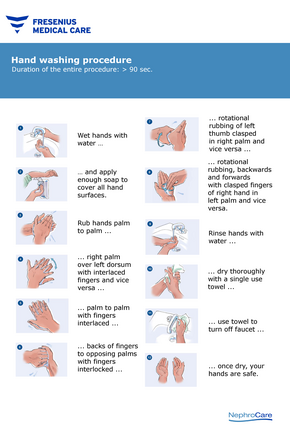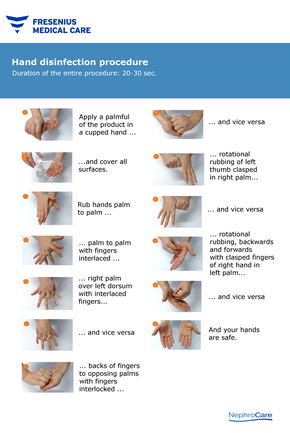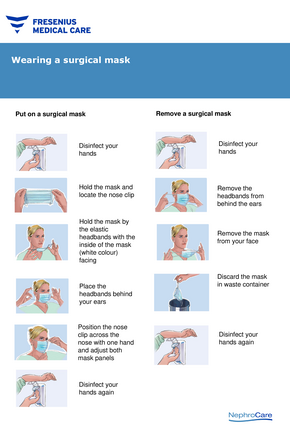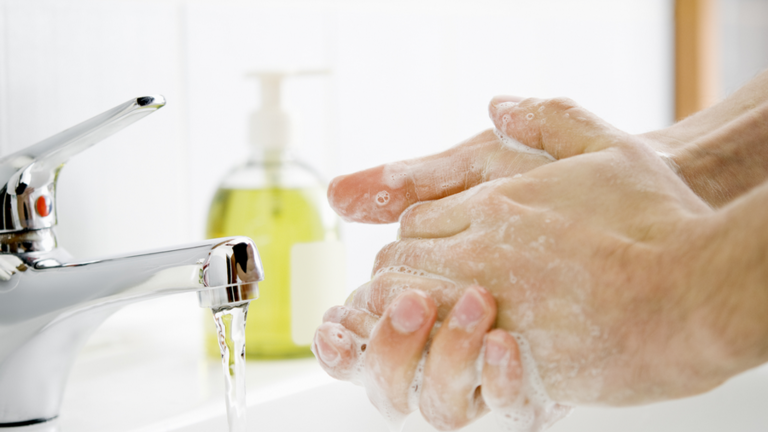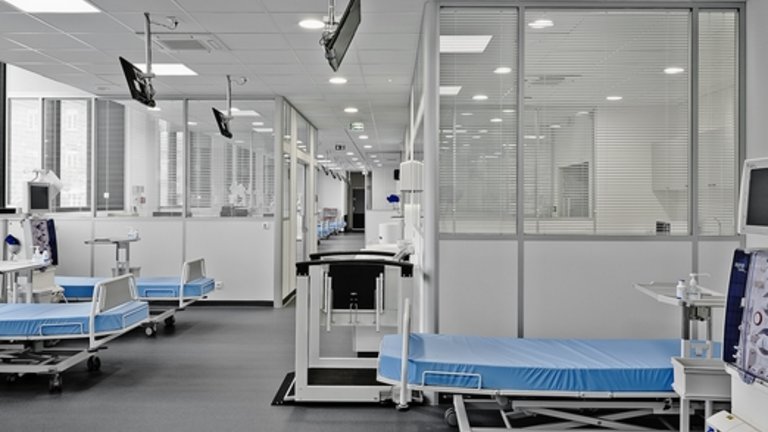The infections are mainly spread through small droplets from the nose or mouth of a Coronavirus positive person. We recommend these prevention measures in daily practice:
Practice Prevention
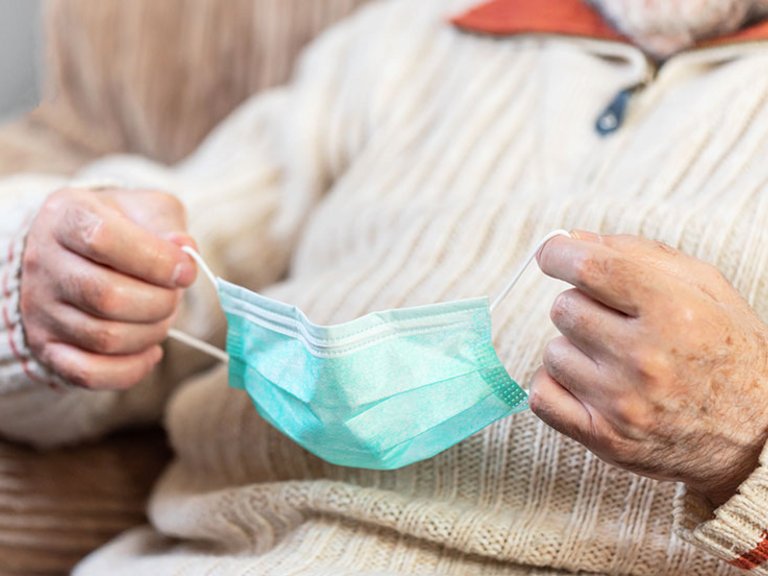
Handwashing and wearing a mask is very important. Find out useful tips and more details here.
Wash your hands with soap, at least for 20 seconds
Following good hand washing practices is the best way to reduce the number of germs on your hands and help prevent infection.
- After using bathroom
- After wiping nose, coughing or sneezing
- Before and after having a meal
- After using public transport
- After being in public places
- Before and after putting mask on and off
You may want to hang up this poster for you and your family members.
How to disinfect your hands correctly
Disinfectants can further help on your hands or near your fistula.
Step by step:
- Apply a palmful of the product in a cupped hand
- Cover all surfaces
- Rub hands palm to palm
- Palm to palm with fingers interlaced
- Right palm over left dorsum with interlaced fingers and vice versa
- Backs of fingers to opposing palms with fingers interlocked and vice versa
- Rotational rubbing of left thumb clasped in right palm and vice versa
- Rotational rubbing, backwards and forwards with clasped fingers of right hand in left palm and vice versa
You may want to hang up this poster for you and your family members.
Avoid the spread of germs
- Cover your nose and mouth with a tissue or your elbow (not the fistula arm) when you cough or sneeze. Avoid using your bare hands
- Throw used tissues into trash immediately
- Regularly disinfect your hands and arms
- Avoid touching your eyes, nose and mouth directly
- Avoid physical contact by greeting people
- Keep > 1,5 meters distance from others
- Avoid enclosed spaces and crowds of people
Wear a mask
As a physical barrier, surgical masks are designed to prevent these droplets passing onto surfaces or people. This physical barrier can also prevent the droplets to reach the lungs. For protection, it is crucial that the mask is placed properly.
Even if the general public is currently not advised to wear masks, it is recommended for dialysis patients to wear additional protection, when in public.
When to wear a mask
- In general, if using public transport (e.g. bus, tram, taxi) or if you are in a public space
- During your transport to and from the dialysis center
- If instructed by the clinic team, wear the mask during your stay in the dialysis center incl. your treatment
- If you share a household and one member shows respiratory symptoms
You may see the clinic personal using additional protective equipment, don’t be afraid, these are preventative measures.
If necessary, our clinical staff provides you with a mask and shows you how to use it correctly. Please take good care of the equipment given to you and follow the clinic staff instruction.
You may want to hang up this poster for you and your family members.
Why is social distance important?
Coronavirus is spread mainly from person to person.
The infections are mainly spread through small droplets from the nose or mouth of a Coronavirus positive person.
These droplets land on objects and surfaces around the person. Therefore, it is important to stay more than 1,5 meters away from other people. It is important to take other precautions as well (e.g. washing hands after arriving at home or in the clinic).
Older adults, people receiving dialysis or having other severe chronic diseases seem to have a higher risk of developing serious COVID-19 illness.
Therefore, it is especially important that you take actions to reduce your risk and take measures to avoid exposure.
- Stay home on your non-dialysis days
- If possible, use individual transport to and from dialysis facilities
- If using public or group transport (e.g. bus, tram, taxi), protect yourself and others. Disinfect your hands before and after.
- Reduce personal contact and abstain from public & private events
- Do not greet people with a handshake, kiss
or hug. - Ensure to keep > 1,5 m distance from others
- Please make sure to keep sufficient supply of kidney-friendly food, fresh water and sufficient medication. Ideally, ask for assistance in getting your supplies
